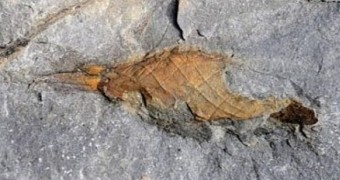Thousands of millennia ago, England looked nothing like it does in this day and age. Thus, the region that is now South Yorkshire used to be a collection of dense forests, swamps, lagoons and the like.
Simply put, the local landscape was very much similar to today's Amazon delta. Hence, the area was populated by all sorts of creatures, one weirder than the other. Apparently, sharks counted themselves among the region's happy residents.
South Yorkshire's hidden past
In a recent paper in the Geological Journal, paleontologist Dean Lomax with the University of Manchester in the UK and fellow researchers explain that, while exploring an old and decrepit mine in Doncaster, they came across several fossilized remains.
These fossils were left behind by plants and animals that lived in the region about 310 million years ago, and many were found to belong to species not yet documented by the scientific community, the specialists further detail.
The fossilized plant and animal remains were pulled from rocks that formed at the core of local coal and shale deposits, and stand as proof that, what seems to be an eternity ago, present-day South Yorkshire accommodated for a lush system of natural ecosystems.
“The fossils unlock a window into a long distant past, buried deep beneath residents’ feet,” University of Manchester paleontologist Dean Lomax commented on these findings in a recent interview with the press.
Furthermore, “They are proof that parts of Yorkshire were once a tropical water-logged forest, teeming with life that may have looked something similar to today’s Amazon delta, a mix of dense forest, lakes, swamps and lagoons.”
Documenting the presence of sharks in South Yorkshire
As detailed in the Geological Journal, a fossilized shark egg case was among the fossils that researcher Dean Lomax and colleagues recovered from the decrepit mine in the proximity of the town of Doncaster. The case, pictured next to this article, indicates that sharks once inhabited the region.
What's interesting is that, unlike the eggs laid by other creatures, those belonging to sharks have a fairly soft case. Consequently, they have high chances to degrade and perish rather than become fossilized, should they fail to hatch, the Alpha Galileo Foundation explains.
“The shark egg case is particularly rare and significant, because it’s soft bodied and an unusual object to find fossilized,” researcher Dean Lomax said in a statement. Unfortunately, the paleontologist and colleagues have until now recovered just this one shark egg case from the region.
The history enthusiasts plan to continue their work, and hope to soon find other fossils. More precisely, they expect that it is only a matter of time until they come across the remains of an actual shark that inhabited this part of England millions of years ago.
“We hope that future organized collecting of the site may reveal further rare discoveries, such as dragonflies, beetles, spiders and further evidence of vertebrates. And who knows, maybe we will even find the actual shark,” said Deam Lomax.

 14 DAY TRIAL //
14 DAY TRIAL //